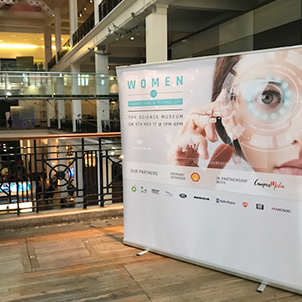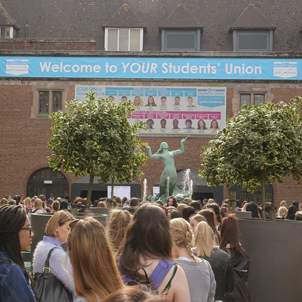Sorry Simon Sinek, but we’re going to have to disagree with you.
Dear Simon Sinek,
It’s coming up to a year since you were interviewed on Inside Quest with Tom Bilyeu. This was how you opened your argument on Millennials in the workplace:
“Millennials as a generation are tough to manage, and they’re accused of being entitled, narcissistic and self-interested, unfocused, lazy…”
While we admire you Simon, here’s why we think – respectfully – that your perspective is outdated when it comes to students and recent graduates entering the workplace:
You say millennials are ‘narcissistic and self-interested’ – we say they demonstrate ethical awareness
Students are generous with their time and, where possible, their money. In fact, according to Entrepreneur.com, 84% of Millennials made a charitable donation in the past year, and 70% volunteered for a cause [1].
This empathy and support makes graduates great team players. It also suggests they are likely to get involved in workplace charity events, fundraisers and campaigns. This would boost team spirit within the workplace and help levels of job satisfaction.
You say millennials are ‘entitled’ – we say they are optimistic
Students recognize that they need to work hard and they expect to benefit from future rewards, which is more than reasonable. In Campus Media’s State of Students report, 70% of students think they will be able to afford a property in the future and more than half feel that their degree was good value, despite the increased fees [2].
You say millennials are ‘unfocused’ – we say they are multi-connected
Young people are particularly talented at navigating a variety of different digital interfaces and as a result they are extremely efficient in the way that they communicate and find information online [3]. Young people are connected to their peers and their capacity to navigate these platforms makes them very aware of current affairs, market trends and global issues.
You say millennials are ‘impatient’ and ‘lazy’ – we say they embrace change
According to your theory, millennials leave jobs quickly because they expect to make an impact immediately and aren’t prepared to put in the work to progress within the same role. However, we’d argue that changing job roles allows young people to exercise and develop different skills. Their adaptable approach to work isn’t a negative and can be beneficial to both employee and employer.
In our experience, students don’t deserve the reputation that they have and your points, although well-poised, are too simplistic and generalized.
My suggestion to employers who are worrying about the next generation of workforce would be this: embrace them for their differences to you, the new skills they bring in and their new work ethic. They are a valuable investment for employers and an extremely influential generation. Appealing to the student market can make an astronomical difference to a company’s commercial success and, later down the line, attract the best talent to the workplace.
Yours sincerely,
Emily Harrison, A recent graduate from Leeds University (…and a millennial)
References:
[1] https://www.entrepreneur.com/article/271972
[2] http://www.bigchoicegroup.com/student-marketing-agency/student-survey-results/The_State_of_Students/
[3] http://www.itstheflashpack.com/experiential-marketing/the-influence-millennials-have-on-social-media
Read more:
Five Brands That Are Doing Political Good[CASE STUDY]
What Students Want From Their First Job[VIDEO]






























